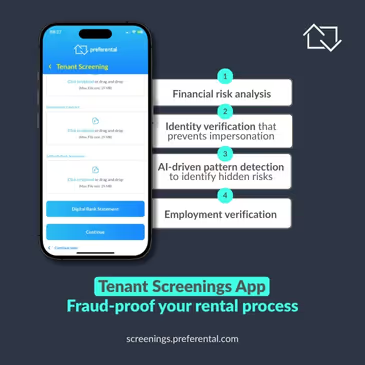Rents surge to 7-Year high as Landlords regain ground - but affordability looms large
Top Insights
- National rent growth hit 5.6% in Q1 the highest since 2017 - pushing average monthly rent above R9 100.
- Limpopo, Free State, and Western Cape lead the charge with double- and high single-digit growth.
- Affordability pressure grows as nearly 80% of agents report tenant moves driven by cost concerns.
South Africa’s Rental Market: Momentum with a Message
South Africa’s residential rental market has kicked off 2025 with its strongest performance in seven years, according to the latest PayProp Rental Index. The national average rent increased by 5.6% year-on-year in Q1 the fastest growth since Q3 2017 taking the average monthly rental figure to R9 132. Growth peaked in February with a 6% year-on-year jump.
A major factor behind this performance is subdued inflation. March CPI dropped to just 2.7%, creating a rare 2.8% gap between rental growth and inflation a substantial real return for landlords. This surge has been driven by tenant demand, a stabilised arrears picture, and widespread provincial momentum.
Arrears Flatline, But Tenants Are Feeling the Pressure
In a welcome twist, Q1 saw no seasonal spike in arrears. The proportion of tenants behind on rent dropped slightly to 17.0%, matching the record low from Q4 2024.
Still, affordability risks are rising. While the rent-to-income ratio remains manageable at 28.8%, agents are warning that increased electricity, fuel and inflationary pressures could soon take a toll especially on the upper-end market. Nearly 80% of agents surveyed cite affordability as a key reason tenants are relocating.
Rental Growth by Province - A Step-by-Step View
- LIMPOPO: Top performer at 10.9% annual growth. Average rent: R8 899. Confirms status as a rising star.
- FREE STATE: Major rebound with 7.6% growth, average rent now R7 453. Jumps ahead of Eastern Cape.
- WESTERN CAPE: Maintains SA’s highest rent at R11 285, with solid growth of 9.6% despite cooling from Q4’s double digits.
- GAUTENG: Slowed to 2.9%, its weakest growth in over a year. Average rent: R9 201.
- MPUMULANGA: Modest 1.1% growth following flat Q4. Still the country’s lowest growth rate.
- KWAZULU-NATAL: Steady growth of 4.5%, average rent now R9 170 — just R31 shy of overtaking Gauteng.
- NORTHERN CAPE: Gained momentum with 3.3% growth after a slow 2024.
- EASTERN CAPE: Modest improvement to 4.4%, but now ranks second-lowest for average rent.
- OTHER REGIONS: Satellite growth continues as PayProp expands its provincial reach, tracking broad-based gains.
Looking Ahead: Optimism with Caution
There’s clear momentum in the market but also complexity. While landlords and agents enjoy improving returns, the real test lies in staying responsive to tenant affordability. Tech-enabled affordability checks, sensitive pricing, and proactive arrears management will be vital.
The coming months may see more movement in the rankings as regions like KZN threaten to overtake Gauteng, and the Western Cape continues to widen the rent gap. For investors and professionals, the watchwords are growth, caution, and adaptability.
“Landlords are finally regaining lost ground, but the smartest ones will grow without pricing out their tenants,” says PayProp’s André van Rooyen.
Download the full report here: https://za.payprop.com/rental-index












.avif)


.avif)

.avif)




.svg)






.avif)




















.avif)
